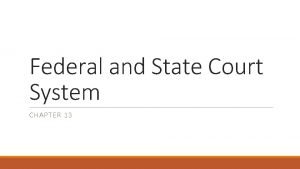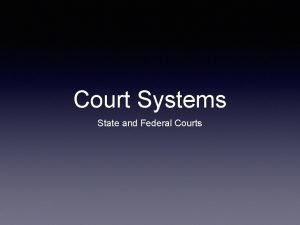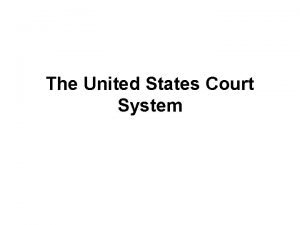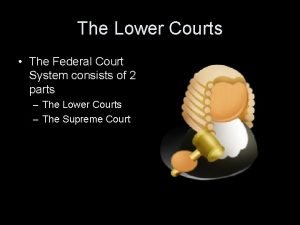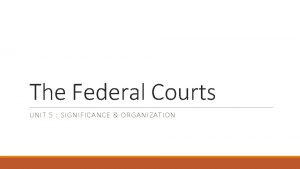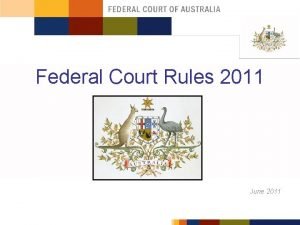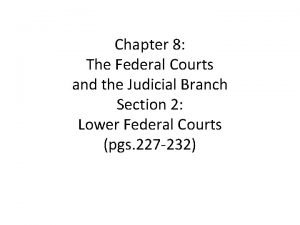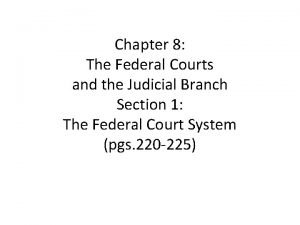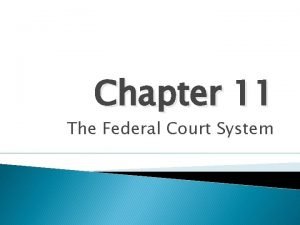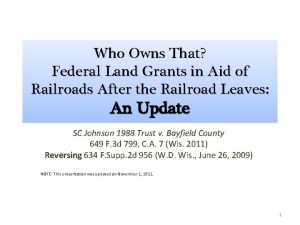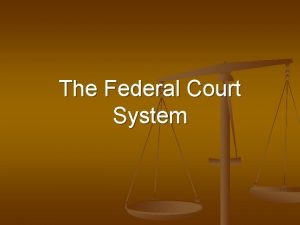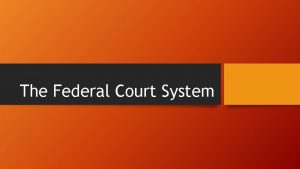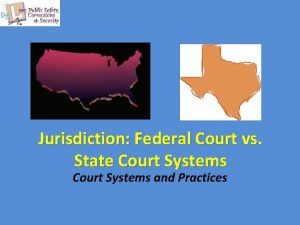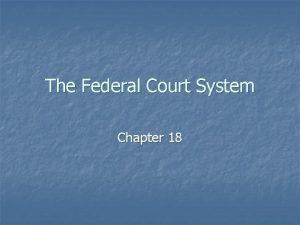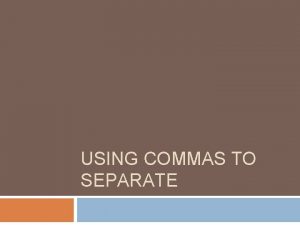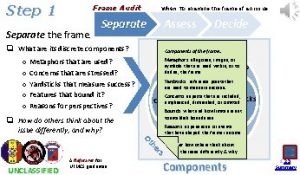Court Systems Two Separate Court Systems 1 Federal










- Slides: 10

Court Systems -Two Separate Court Systems 1. Federal 2. State Two kinds of court cases 1. Civil– • Helps settle disagreements b/w people 2. Criminal • Court that determines whether a person accused of breaking a law is innocent or guilty.

Jurisdiction- the authority to hear a question or case in dispute -1. Original Jurisdiction -this belongs to the court which has the initial authority to hear a case -2. Exclusive Jurisdiction -means that jurisdiction belongs to only one group -3. Concurrent Jurisdiction -this means that a case can be heard in one of several courts

Federal Court System

Federal District Court -lowest level of Federal Courts -all federal cases must begin at this level -Each court rules over a district. At least one court per state -District Courts complete about 90% of the Federal case load

Federal District Court’s Purpose -District Courts handle cases that fall under Federal jurisdiction -District Courts use a jury trial to decide guilt or innocence -Judges are to interpret the law and determine punishments

Federal District Court Officials -Judges are appointed by the President w/ Senate approval • “president appoints, senate approves” Judges serve a life-time term - U. S. Marshals- • work for Dep’t of Justice • make arrests, collect fines, find people who have escaped conviction or arrest -Magistrates • Take care of routine work and send out search and arrest warrants -Court Clerks • complete paperwork and help research people for magistrates and marshals’ office

Federal Appeals Court -Appeals Courts serve as the second level in the system -They have only appellate jurisdiction--Authority to hear a case after it has even heard in lower court -there are 12 courts of Appeal in the U. S. which supervise a district -Cases are appealed to the Court because of unfairness or error **lawyers usually ask for an appeal when they think the judge in their case applied the law incorrectly, used wrong procedures or new evidence was found.


Federal Appeals Court Procedures -No juries are used in Appeals Courts -No determination is made on guilt or innocence -Only decision is whether a fair trial was given -Panels of 3 or more judges hear the cases and make decisions

Federal Appeals Court Rulings -Appeals Courts can make three decisions in a case 1. Uphold confirm the previous court’s decision **keep it the same 2. Overturn -reverse the previous court’s decision 3. Remand -send the case back down to a lower court for retrial
 Chapter 13 federal and state court systems
Chapter 13 federal and state court systems Federal and state court systems
Federal and state court systems U.s. circuit court
U.s. circuit court Federal court system structure
Federal court system structure Federal court system structure
Federal court system structure Federal court rules 2011
Federal court rules 2011 Federal district court map new york
Federal district court map new york Federal court system structure
Federal court system structure The federal court system chapter 11 answer key
The federal court system chapter 11 answer key Federal court structure
Federal court structure Federal court system chart
Federal court system chart
